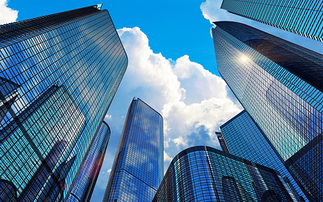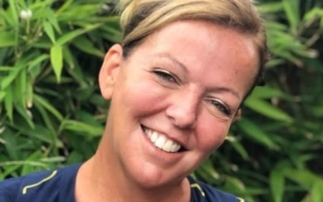We should double down on creating stronger, smarter, more resilient global institutions as we recovery from the pandemic, argues the Center for Global Development's Masood Ahmed
Development practitioners the world over have always accepted that at their essence the UN Sustainable Development Goals (SDGs), like the Millennium Development Goals before them, would remain aspirational and not attainable unless wealthy countries, donors and philanthropists, and major corporations pooled their considerable resources to convert billions into trillions of dollars.
Not six months ago, the start of a new decade was as an organising moment for the global community to pick up the financial pace in the marathon race to the 2030 SDGs. But with the onset of the Covid-19 pandemic and its severe implications for physical and mental human health as well as economic livelihood and global financial stability, we know that there will be considerable rollbacks in the gains already made toward the goals.
We should double down on creating stronger, smarter, more resilient global institutions for the future - to fight and build back from the pandemic but also keep the goals in sight. No easy feat, but I offer a few examples below that could strengthen our collective hand, many of which my colleagues at the Center for Global Development have been exploring.
We've reached the 'break the glass' moment for development financing
During the 2008 financial crisis, multilateral development banks (MDBs) found ways to relax their normally prudent lending standards, lend generously, and still meet their obligations.
Today, the MDBs are in a better financial position, evidenced by recapitalisation completions at the World Bank and the African Development Bank that when taken into consideration, puts their total loan portfolios around $700bn. Maxing this out, stretching their capital base, and laying the groundwork for future capital increases could take their portfolios to as high as $1.5tr. It is time to break the glass and try.
New rules for low-income country debt issues
Even before the pandemic, 40 per cent of low-income countries were either in, or at high risk of, debt distress. Immediate new rules implemented by the IMF and the World Bank and backed by their majority shareholders will allow cash to flow and defer longer, necessary changes for at least 18-24 months. I recently laid out a multitiered approach the international financial institutions could take to help these countries ride the worst of the wave while paving the groundwork for the aftermath.
Help the private sector manage development risk
Development finance institutions (DFIs) have sometimes struggled as the middleman between private investors and development projects. It usually comes down to risk tolerance on the part of the investor and the DFI. A new public-private actor, structured as a stretch fund, would be more risk tolerant and have a different financial objective, filling this critical gap in the development financing architecture.
All-in for global health security
Ahead of the June 2020 G20 summit, we worked with a few other organizations to conceive of a Global Health Security Challenge Fund, which in part would supplement existing emergency financing mechanisms through the World Health Organisation, the UN and the World Bank. It would also strengthen key non-governmental organisations to develop, purchase, and equitably deliver affordable countermeasures for Covid-19 and other emerging threats.
At a time of fraying multilateralism and rising nationalism, it may feel retrograde to some to talk about the importance and strengthening of global institutions.
But it was a rules-based order, created from the ashes of the Second World War and managed by new global institutions backed with political will from major countries, that contributed to the greatest period of economic growth and reduction in extreme poverty in human history the last 70 years. In this fight of a lifetime, as we look for solutions old and new, let us not look past or weaken what we created to help us all. In that spirit, we could yet achieve the objectives of SDG16.
Masood Ahmed is president the Center for Global Development, a think tank based in Washington, DC and London







